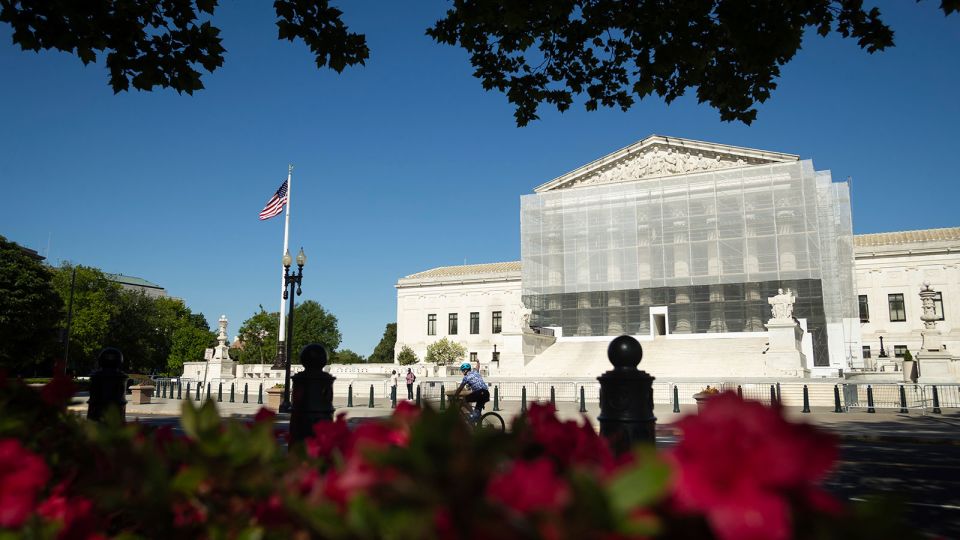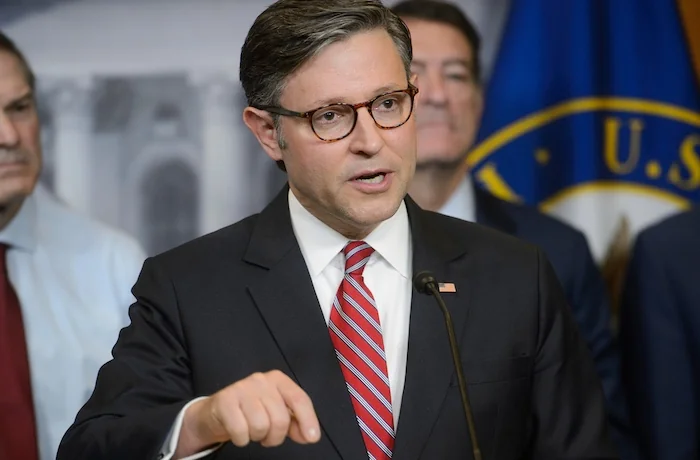What to Watch as the Supreme Court Takes on Birthright Citizenship in Landmark Arguments
The Supreme Court is set to hear arguments on Thursday concerning issues related to the President.
Donald Trump’s proposal to terminate birthright citizenship
And substantially restrict the authority of federal courts to impede his plans — a matter that has been expedited for consideration before the Supreme Court within just four months since his return to the presidency.
Though not framed as a case on the constitutionality of birthright citizenship, the emergency appeal nevertheless asks the 6-3 conservative court to allow the administration to widely enforce an order Trump signed on his first day in office that would
deny passports and other documents
for children born to parents who are not US citizens.
As he progresses, Trump anticipates that a majority of justices will likewise prevent courts from exerting jurisdiction in subsequent cases.
pausing his policies on a nationwide basis
.
This case represents the culmination of the administration’s unprecedented approach to legal norms, being the first one related to Trump to be presented before the court during his second term.
Trump, who has criticized specific judges whose rulings go against him, contends that the courts have exceeded their bounds by challenging an agenda he was elected to implement last year. His legal team characterizes their petition as “modest,” aiming merely to restrict court injunctions that temporarily halt his initiatives to only those individuals who file lawsuits, rather than affecting the entire country.
Trump is not alone in chafing against those orders. Both Democratic and Republican presidents have complained about what they view as “activist” judges.
But a key question for the Supreme Court – and an important dynamic to watch Thursday – is whether a majority of justices are prepared to address that more technical issue with a decision that could, in effect, allow the government to upend how birthright citizenship has been understood for more than a century.
The 14th Amendment’s guarantee that “all persons born or naturalized in the United States” are citizens was ratified in 1868, a response to the Supreme Court’s infamous Dred Scott decision that held African Americans were not citizens.
Here’s what to watch for on Thursday:
Procedure vs. practice
Ever since the
Supreme Court agreed last month
to hear arguments in the birthright citizenship dispute, there has been a simmering debate over what, exactly, the justices will be discussing for more than an hour.
On its face, the emergency appeal, which Trump filed in March, deals with whether lower courts overstepped their power by blocking Trump from enforcing his executive order on
national citizenship across the country
.
The Department of Justice informed the justices in multiple filings that these directives have “become an epidemic” and cause “irreparable harm to our system of divided governmental powers.”
However, immigrant advocacy organizations, the plaintiff states, and numerous scholars anticipate that it will be challenging to completely disentangle the procedural matters from the practical outcomes. This is due to the fact that should Trump prevail, the real-world consequences could be extensive.
Should Trump receive all he seeks from the Supreme Court, his administration could essentially implement its birthright citizenship directive nationwide, affecting virtually every individual except for 18 persons—at least initially. This scenario might necessitate up to hundreds of thousands of people filing separate lawsuits against the administration or compel immigrant advocacy groups to initiate a class-action lawsuit as a form of opposition.
Some experts think these possibilities might linger in the thoughts of several justices.
“I’ll be let down if the court doesn’t reveal its thoughts on the merits to some degree,” stated Vikram Amar, a professor at the UC Davis School of Law.
One approach,” he stated, “would be to convey quite clearly to the administration that this directive isn’t expected to pass muster, regardless of whether they decide against making an official ruling at present.
An important aspect to observe will be the extent to which the justices inquire about the practical implications of Trump’s request – this could indicate that they are also contemplating the case from a wider perspective.
Irreparable harm to Trump?
The court needs to decide if the Trump administration would face irreversible damage should the three country-wide, also termed as “universal,” judgments halting the birthright order remain unchanged.
Just as it has done in numerous previous cases, the Trump administration has contended that the simple act of a brief judicial injunction halting its policy imposes significant hardship due to alleged breaches of the principle of separation of powers.
“This scenario is unacceptable,” U.S. Solicitor General D. John Sauer, who serves as the administration’s chief appellate lawyer, stated in written submissions to the Supreme Court. He highlighted that the considerable amount of injunctions issued against Trump was notably higher when contrasted with those faced by previous presidents.
“By permitting individual, unappointed federal judges to override comprehensive executive-branch strategies with minimal provocation,” Sauer went on, “they generate unnecessary conflict between branches of government and commit a genuine assault” on the president’s power.
However, critics argue that requiring the administration to maintain an approach that has been in place for over a century, even temporarily, cannot possibly damage their standing.
Thirty years following the 14
th
Amendment was ratified, the Supreme Court ruled in
US v. Wong Kim Ark
that people born in the United States – in that case, the son of Chinese immigrants – are entitled to US citizenship, with a few narrow exceptions.
“National prohibitions serve as one of the instruments at judges’ disposal to halt widespread infringements of constitutional rights and shield individuals from unlawful governmental actions,” stated Cody Wofsy, who serves as the deputy director for the ACLU Immigrants’ Rights Project. This organization was among those that initiated legal challenges against the directive.
This executive order serves as a prime illustration of that,” he stated, “due to how blatantly unconstitutional it is.
Can states sue Trump?
Besides contending that courts exceeded their jurisdiction by halting the birthright citizenship directive, the Trump administration also asserts that states were not entitled to challenge this directive from the outset.
Should the Supreme Court adopt that stance, it might considerably restrict blue states’ capacity to initiate further litigation against other Trump administration policies – as well as potentially restraining red states from suing Democratic presidents moving forward.
If most of the justices indicate on Thursday their reservations about states’ capability to file lawsuits, this could be seen as a positive omen for Trump.
In recent times, the Supreme Court has narrowed down the conditions under which states can file lawsuits against a president. A 2023 ruling garnered backing from both conservative and liberal judges on the bench.
the court found that Texas
did not have standing to raise an equal protection claim against a 1978 federal law that requires adoption and foster care agencies to give preference to Native American families for Native children. Last year, a 6-3 majority ruled that Louisiana and Missouri didn’t have standing to sue over White House efforts to
pressure social media platforms
to take down content the government viewed as misinformation.
Both of those opinions were written by Justice Amy Coney Barrett, a member of the court’s conservative wing. And the Department of Justice leans heavily on both to make the argument that the 22 states suing over birthright citizenship should be knocked out of the litigation.
But the states say they have a stronger argument in the birthright case because they’re not suing the Trump administration on behalf of their citizens’ rights; rather, they are suing over their own bottom lines. States receive significant federal reimbursement for health and education programs based the number of children living within their borders – but only if those children have legal immigration status.
In other words, the states say, they stand to lose a lot of money if Trump’s order takes effect.
A little or a lot?
Both liberal and conservative justices have, for years, voiced concern about nationwide injunctions. A key dynamic to watch on Thursday will be how far a majority of the court is willing to go to address those concerns. The Trump administration, not surprisingly, wants the court to go all the way and end universal injunctions entirely.
The Department of Justice has argued in briefings that the Constitution bars lower courts from issuing orders that affect Americans who are not parties to the litigation at issue. And, the department says, for much of the nation’s history, the federal judiciary agreed with that assessment.
“For the initial 170 years of America’s legal history, nationwide injunctions were scarcely encountered,” the Trump administration informed the court.
I would rather have a system with less than what exists currently.
“A senior administration official informed journalists this week, ‘I believe any restriction will merely serve as a loophole big enough for a truck to pass through.’”
However, the Supreme Court might opt for a step-by-step method instead, defining specific circumstances under which universal injunctions can be used without outright prohibiting them. Those opposing Trump’s directive on birthright citizenship argue that abolishing these injunctions entirely during a presidency that frequently tests legal limits could prove perilous.
“One aspect will involve determining whether their queries pertain to the constitutional authority of federal courts to grant such injunctions,” stated Amanda Frost, who is a professor at the University of Virginia School of Law.
However, Frost suggested that despite a potential majority leaning towards supporting Trump regarding the injunction, it could still be challenging to reach consensus when considering the matter of birthright citizenship as well.
If I were an attorney for the executive branch aiming to restrict the breadth of injunctions,” she stated, “this would be the final case I’d desire to present before the court.
Paula Reid and Casey Gannon from Big One News provided contributions for this report.
To get more Big One News and newsletters, sign up for an account there.
Big One News






